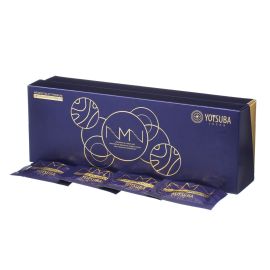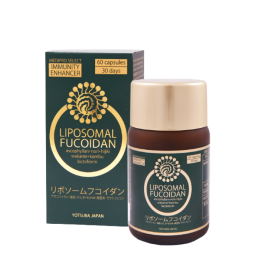How to Take Vitamins Properly: Useful Tips for Health-Conscious Individuals

Today, vitamins and minerals can be easily purchased at pharmacies or online stores. However, people often don’t consider how to take vitamins properly, relying only on well-advertised brands. If you want to take care of your health, it’s better to consult a doctor who can prescribe the right vitamin complexes, determine the dosage, and recommend the duration of the course.
The Role of Vitamins in Maintaining Health
Vitamins play a crucial role in maintaining health as they are essential for many physiological processes in the body. Vitamins C, D, and E help normalize the immune system, aiding in the fight against infections and protecting the body from viruses and bacteria. To maximize health benefits, it’s important to know how to take vitamins correctly.
Vitamin D and Vitamin K, together with minerals like calcium and magnesium, strengthen bones and teeth, ensuring proper mineralization. B vitamins are essential in regulating metabolism.
Vitamins A, C, and E are known for their antioxidant properties, supporting the health of the skin, hair, and nails, and protecting cells from damage caused by free radicals.
Japanese vitamins, available online at Yotsuba Japan, have proven effective. They are safe and do not cause side effects or allergic reactions.

How to Take Vitamins Correctly
Endocrinologists suggest not taking vitamins on your own without consulting a doctor. This is especially important for young children, whose parents often buy them “harmless” vitamins based on ads or other mothers’ recommendations. Such an approach can have unpredictable consequences.
How to Take Vitamin D Properly
B vitamins contribute to bone growth and development, help absorb phosphorus and calcium better, and promote faster bone healing after fractures. They also boost immunity and accelerate metabolism.
The daily intake ranges from 800 to 2,000 IU, but the exact dosage should be determined by a doctor. It’s crucial to know how to take vitamin D properly.
Since vitamin D is fat-soluble, it is best taken right after a meal. It can be taken along with magnesium, calcium, and B vitamins. You can choose supplements in capsule, liquid, or tablet form.
How to Take Zinc Properly
Research shows that patients who take zinc during a cold experience milder symptoms, and their recovery is twice as fast. Zinc prevents viruses from entering the cells. The daily requirement of zinc depends on gender and age, typically between 10 to 30 mg per day. Women need 10-20 mg daily, and this dose can increase to 30 mg during pregnancy and breastfeeding. Men require 40-45 mg daily, while the maximum dose for children is 28 mg.
Not everyone knows how to take zinc properly. Zinc supplements should be taken with food to reduce gastrointestinal irritation. Avoid exceeding the dose, as too much zinc can cause side effects like digestive issues and reduced absorption of other minerals. Stick to the recommended dosage for your age and gender.
How to Take Vitamin E Properly
The recommended daily dose of vitamin E for adults is 15 mg. However, this may vary depending on age, gender, and health conditions. A common question is how to take vitamin E properly.
It can be taken orally in tablet form at the prescribed dosage. Vitamin E is best absorbed with food, especially with fatty foods. Additionally, vitamin E in liquid form can be used as a cosmetic product.
General Rules for Taking Vitamins

Can Vitamins Be Taken with Antibiotics?
A common question is whether vitamins and antibiotics can be taken together. Experts recommend stopping vitamin intake while on antibiotics, as vitamins provide a nourishing environment for bacteria. Resume taking vitamins after the treatment to help the body recover faster. If you’re taking other medications, consult a doctor to see if they can be combined.
Which Vitamins Can Be Taken Together?
Not all vitamins can be taken at the same time, so it’s essential to know when to take each supplement and what to combine it with. For example, vitamins D, C, and K complement each other well, and magnesium and phosphorus can be taken alongside them.
Vitamins E and C go well with vitamin A, and zinc, iodine, and iron can also be paired with vitamin A. Iron and chromium pair well with vitamin C.
Avoid self-medication, as it can lead to unexpected consequences.
The Role of Vitamins in Maintaining Health
Vitamins play a crucial role in maintaining health as they are essential for many physiological processes in the body. Vitamins C, D, and E help normalize the immune system, aiding in the fight against infections and protecting the body from viruses and bacteria. To maximize health benefits, it’s important to know how to take vitamins correctly.
Vitamin D and Vitamin K, together with minerals like calcium and magnesium, strengthen bones and teeth, ensuring proper mineralization. B vitamins are essential in regulating metabolism.
Vitamins A, C, and E are known for their antioxidant properties, supporting the health of the skin, hair, and nails, and protecting cells from damage caused by free radicals.
Japanese vitamins, available online at Yotsuba Japan, have proven effective. They are safe and do not cause side effects or allergic reactions.

How to Take Vitamins Correctly
Endocrinologists suggest not taking vitamins on your own without consulting a doctor. This is especially important for young children, whose parents often buy them “harmless” vitamins based on ads or other mothers’ recommendations. Such an approach can have unpredictable consequences.
How to Take Vitamin D Properly
B vitamins contribute to bone growth and development, help absorb phosphorus and calcium better, and promote faster bone healing after fractures. They also boost immunity and accelerate metabolism.
The daily intake ranges from 800 to 2,000 IU, but the exact dosage should be determined by a doctor. It’s crucial to know how to take vitamin D properly.
Since vitamin D is fat-soluble, it is best taken right after a meal. It can be taken along with magnesium, calcium, and B vitamins. You can choose supplements in capsule, liquid, or tablet form.
How to Take Zinc Properly
Research shows that patients who take zinc during a cold experience milder symptoms, and their recovery is twice as fast. Zinc prevents viruses from entering the cells. The daily requirement of zinc depends on gender and age, typically between 10 to 30 mg per day. Women need 10-20 mg daily, and this dose can increase to 30 mg during pregnancy and breastfeeding. Men require 40-45 mg daily, while the maximum dose for children is 28 mg.
Not everyone knows how to take zinc properly. Zinc supplements should be taken with food to reduce gastrointestinal irritation. Avoid exceeding the dose, as too much zinc can cause side effects like digestive issues and reduced absorption of other minerals. Stick to the recommended dosage for your age and gender.
How to Take Vitamin E Properly
The recommended daily dose of vitamin E for adults is 15 mg. However, this may vary depending on age, gender, and health conditions. A common question is how to take vitamin E properly.
It can be taken orally in tablet form at the prescribed dosage. Vitamin E is best absorbed with food, especially with fatty foods. Additionally, vitamin E in liquid form can be used as a cosmetic product.
General Rules for Taking Vitamins
- Do not self-medicate, consult a doctor to choose the appropriate vitamin and mineral complexes
- Read the instructions on the packaging carefully and follow the manufacturer's recommendations
- Take vitamins at the same time every day
- Drink vitamins with plain water. Juice, coffee, or tea may reduce the effectiveness of vitamin absorption
- Be cautious if you are prone to allergies, and discuss this with your doctor
- Many supplements should be taken after meals to reduce potential stomach irritation
- Continuous vitamin intake is not recommended. A break of at least 1.5-2 months is necessary.

Can Vitamins Be Taken with Antibiotics?
A common question is whether vitamins and antibiotics can be taken together. Experts recommend stopping vitamin intake while on antibiotics, as vitamins provide a nourishing environment for bacteria. Resume taking vitamins after the treatment to help the body recover faster. If you’re taking other medications, consult a doctor to see if they can be combined.
Which Vitamins Can Be Taken Together?
Not all vitamins can be taken at the same time, so it’s essential to know when to take each supplement and what to combine it with. For example, vitamins D, C, and K complement each other well, and magnesium and phosphorus can be taken alongside them.
Vitamins E and C go well with vitamin A, and zinc, iodine, and iron can also be paired with vitamin A. Iron and chromium pair well with vitamin C.
Avoid self-medication, as it can lead to unexpected consequences.
Posted:
September 26, 2024











Log In